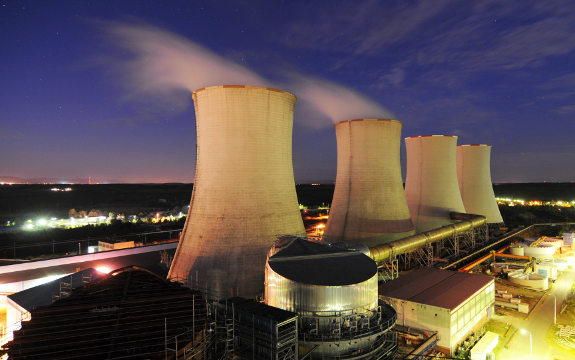Study: Even Low-Level Pollution can Increase Cancer Risk

 Exposure to thick smog everyday can be hazardous to your health – duh! This isn’t a news-flash—it’s well known. But a new study suggests even low levels of air pollution can increase your risk of lung cancer. Even in situations where you don’t see or smell the pollution, it could be having serious effects on your health.
Exposure to thick smog everyday can be hazardous to your health – duh! This isn’t a news-flash—it’s well known. But a new study suggests even low levels of air pollution can increase your risk of lung cancer. Even in situations where you don’t see or smell the pollution, it could be having serious effects on your health.
The study, published in the cancer journal The Lancet Oncology, says that long-term exposure can be deadly. The researchers analyzed the effects of air pollution on 313,000 people, finding that even pollution levels less than the air quality standards of the European Union can increase cancer risk.
The researchers from the Danish Cancer Society Research Center looked at pollution from traffic, industry, and even domestic heating. In particular, they measured exposure to nitrogen oxides and matter with diameters of less than 2.5 micrometers and less than 10 micrometers.
They found that the risk of lung cancer increased a whopping 18% with every 5 micrograms per cubic meter of pollution. The increase was 22% in pollution increases of 10 micrograms per cubic meter.
“We found no threshold below which there was no risk; the results showed a picture that ‘the more the worse, the less the better,” wrote the researchers.
In other words: there is no level at which air pollution becomes safe.
“At this stage, we might have to add air pollution, even at current concentrations, to the list of causes of lung cancer and recognize that air pollution has large effects on public health.”
More people in the United States die from lung cancer than from any other type of cancer, according to the CDC. In 2009, the last year for which data is available, an estimated 158,081 people in the U.S. died of lung cancer. Of course we know that smoking has much to do with this, but pollution is a large issue as well.
“Our study overcomes several limitations of previous studies, having a large sample size, broad European coverage, retrospective exposure assessment, adjustment for a wide range of potential confounders, and incident lung cancer as the outcome. Particulate-matter air pollution is ubiquitous, and on the basis of our results, further reductions [in it] can be expected to reduce the number of lung cancer cases in Europe.”
The research comes around the same time another study was released tying pollution to increased autism rates. The national Harvard study found that women in highly polluted cities were twice as likely to have children with Autism than those who lived in less polluted areas.
The takeaway: do your part to reduce pollution when possible, and support society’s movement toward less pollution-emitting practices.
Additional Sources:
